
Espargos: The Heartbeat of Sal Island
Nestled in the center of Sal Island, Espargos is the vibrant heart of Cabo Verde. Known for its warm, welcoming atmosphere, Espargos offers a unique blend of traditional Cape Verdean culture and modern urban life. The city is named after the wild asparagus that once grew abundantly in the area, and it continues to be a place of natural beauty and local charm. Espargos is the administrative and commercial hub of Sal Island, making it an ideal base for exploring the rest of the island. The city is home to a variety of shops, restaurants, and markets, where you can sample local delicacies and purchase handmade crafts. Wander through the bustling streets and you'll be greeted by colorful murals, lively music, and the friendly smiles of the locals. A visit to Espargos is not complete without a trip to the nearby Pedra de Lume salt mines. This historic site offers a glimpse into the island's past and provides stunning views of the surrounding landscape. For those seeking adventure, the nearby beaches and watersports opportunities are not to be missed. Whether you're here for the culture, the history, or the natural beauty, Espargos is a destination that promises to leave a lasting impression.
Local tips in Espargos
- Visit the local markets early in the morning for the freshest produce and seafood.
- Take a guided tour to Pedra de Lume salt mines for a historical and scenic experience.
- Try the local dish 'Cachupa', a hearty stew, at one of Espargos' traditional restaurants.
- Rent a car or use local 'aluguers' (shared taxis) to explore the island easily.
- Learn a few phrases in Portuguese or Creole to connect better with the locals.
Espargos: The Heartbeat of Sal Island
Nestled in the center of Sal Island, Espargos is the vibrant heart of Cabo Verde. Known for its warm, welcoming atmosphere, Espargos offers a unique blend of traditional Cape Verdean culture and modern urban life. The city is named after the wild asparagus that once grew abundantly in the area, and it continues to be a place of natural beauty and local charm. Espargos is the administrative and commercial hub of Sal Island, making it an ideal base for exploring the rest of the island. The city is home to a variety of shops, restaurants, and markets, where you can sample local delicacies and purchase handmade crafts. Wander through the bustling streets and you'll be greeted by colorful murals, lively music, and the friendly smiles of the locals. A visit to Espargos is not complete without a trip to the nearby Pedra de Lume salt mines. This historic site offers a glimpse into the island's past and provides stunning views of the surrounding landscape. For those seeking adventure, the nearby beaches and watersports opportunities are not to be missed. Whether you're here for the culture, the history, or the natural beauty, Espargos is a destination that promises to leave a lasting impression.
When is the best time to go to Espargos?
Iconic landmarks you can’t miss
The Pier of Santa Maria
Experience the vibrant atmosphere and stunning ocean views at the Pier of Santa Maria, a must-visit destination in Cape Verde for every traveler.
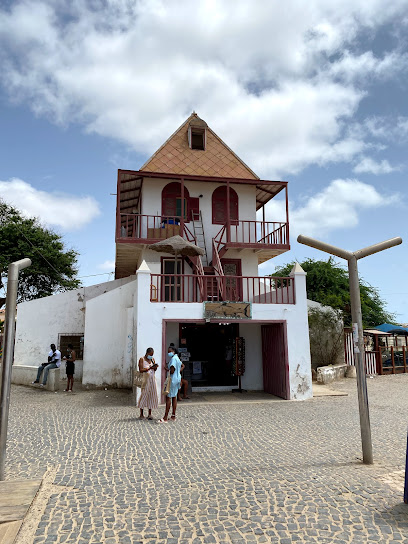
Buracona - Blue Eye Cave
Discover the stunning Buracona Blue Eye Cave in Cape Verde, a breathtaking natural wonder with vibrant blue waters and spectacular coastal views.
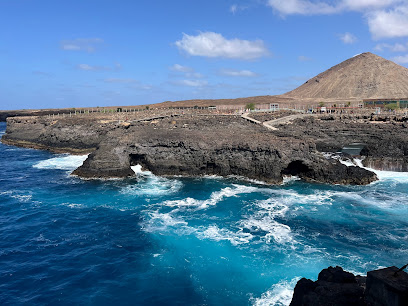
Shark Bay
Experience the stunning beauty and vibrant marine life of Shark Bay, a coastal paradise perfect for adventure and relaxation.
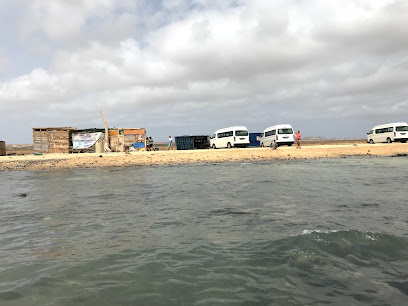
Salinas de Pedra de Lume
Explore Salinas de Pedra de Lume in Cape Verde for stunning salt flats, therapeutic waters, and a rich cultural heritage in a breathtaking volcanic setting.
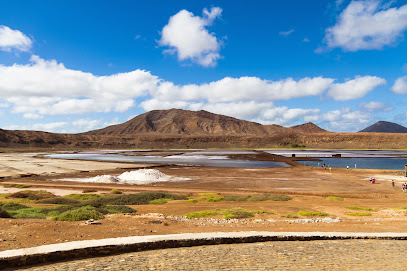
Hilton Cabo Verde Sal Resort
Discover the ultimate luxury escape at Hilton Cabo Verde Sal Resort, featuring stunning ocean views, top-notch amenities, and endless relaxation.
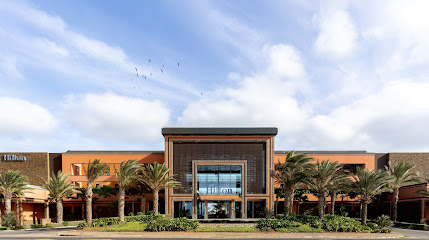
Pachamama Eco Park - Viveiro Botanical Garden
Experience the beauty of nature at Pachamama Eco Park - Viveiro Botanical Garden, a serene ecological park in the heart of Cape Verde.
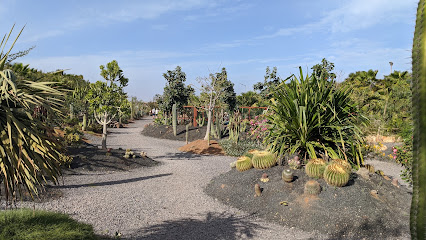
Amílcar Cabral International Airport
Experience the vibrant atmosphere and modern amenities at Amílcar Cabral International Airport, your gateway to the breathtaking Cape Verde Islands.
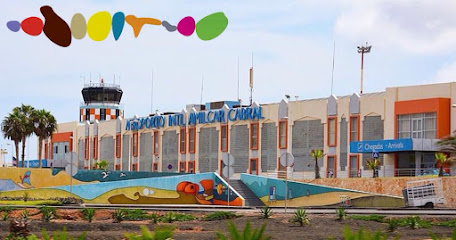
TUI BLUE Cabo Verde - Adults Only
Experience luxury and tranquility at TUI BLUE Cabo Verde - Adults Only, your perfect getaway in the beautiful Santa Maria of Cape Verde.
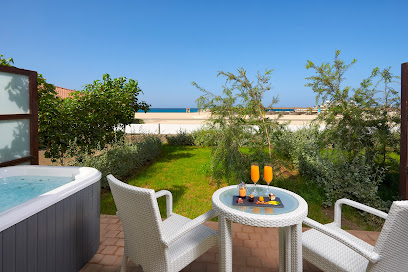
Robinson Club Cabo Verde
Experience the bliss of Robinson Club Cabo Verde, an all-inclusive resort offering luxury, adventure, and a taste of Cape Verdean culture in Santa Maria.

Praia da Atalanta
Experience the tranquil beauty of Praia da Atalanta, a pristine beach in Ponta Adiante, Cape Verde, ideal for relaxation and water sports.

No Limits Adventure Cape Verde
Experience the ultimate adventure in Cape Verde with No Limits Adventure, offering thrilling activities and unforgettable excursions for all travelers.
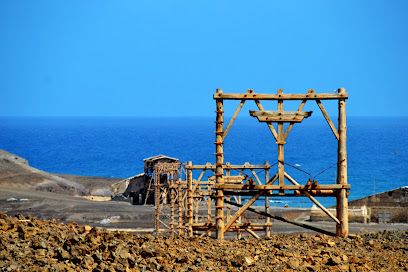
The Dubliner - Irish Bar
Experience the warmth of Ireland at The Dubliner, a charming bar on Santa Maria Beach, serving delightful Irish cuisine and vibrant entertainment.
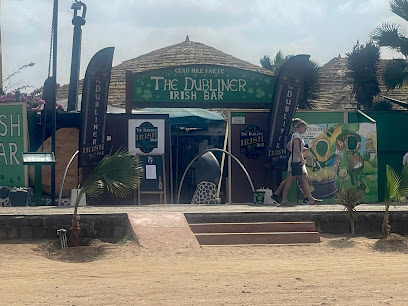
GiraMondo
Discover the flavors of Santa Maria at GiraMondo, where delightful ice cream meets vibrant island culture in a sweet escape.
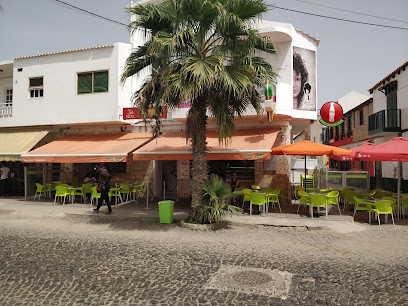
Casino Royal
Experience the thrill of gaming and vibrant entertainment at Casino Royal in Santa Maria, Cabo Verde, where the night comes alive.
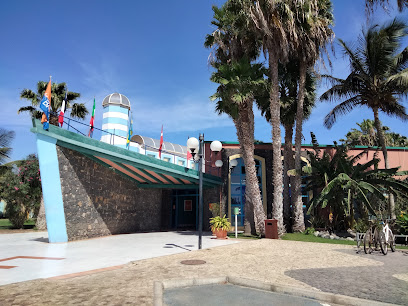
Terra Boa
Experience the breathtaking landscapes and vibrant culture of Terra Boa, a must-visit tourist attraction in the heart of Espargos, Cape Verde.
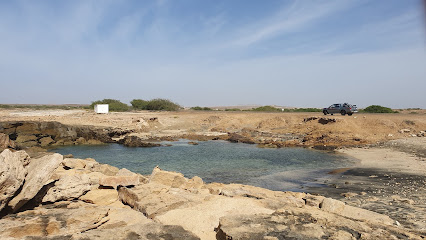
Unmissable attractions to see
The Pier of Santa Maria
Experience the vibrant atmosphere of Santa Maria's pier: ocean views, local culture, fresh seafood, and a glimpse into Cape Verde's heritage.
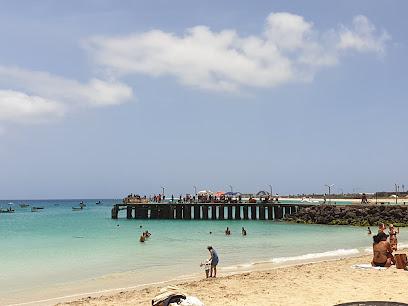
Buracona - Blue Eye Cave
Discover the mesmerizing Blue Eye Cave in Buracona, Cape Verde, where volcanic landscapes meet an underwater spectacle of light and color.
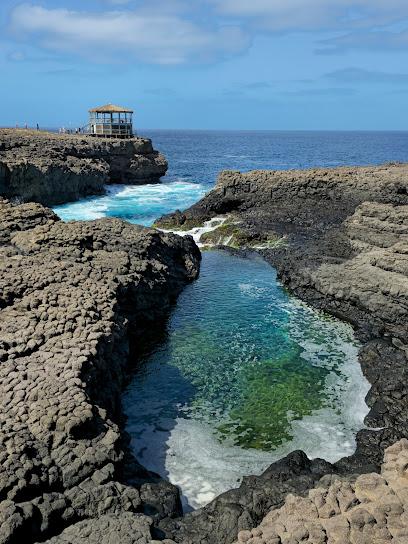
Shark Bay
Experience the breathtaking beauty of Shark Bay in Feijoal, Cape Verde, a paradise for beach lovers, snorkelers, and adventure seekers.
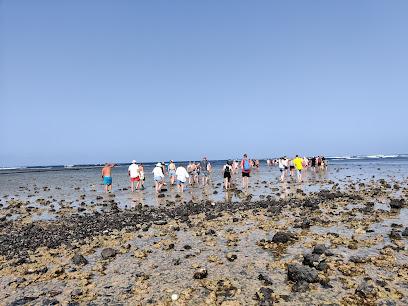
Salinas de Pedra de Lume
Explore Salinas de Pedra de Lume, a breathtaking salt flat in Cape Verde, offering unique experiences, stunning views, and rich cultural history.
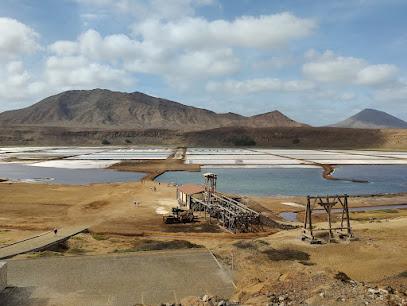
Pachamama Eco Park - Viveiro Botanical Garden
Explore the serene Pachamama Eco Park, a botanical garden in Cape Verde celebrating nature's beauty and ecological preservation.
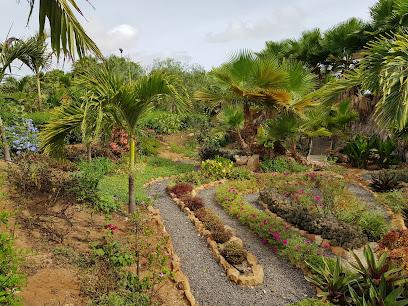
Terra Boa
Experience the breathtaking landscapes and rich culture of Terra Boa, Espargos – a must-visit destination in Cape Verde for nature lovers and adventurers.
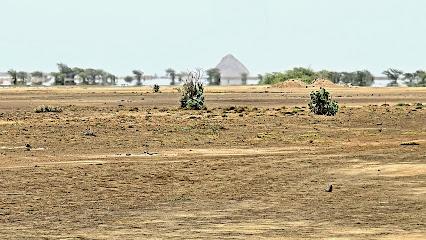
Cabo Verde Diving Melia Tortuga & Dunas
Discover the underwater wonders of Santa Maria with Cabo Verde Diving at Melia Tortuga & Dunas. Dive into adventure and tranquility!
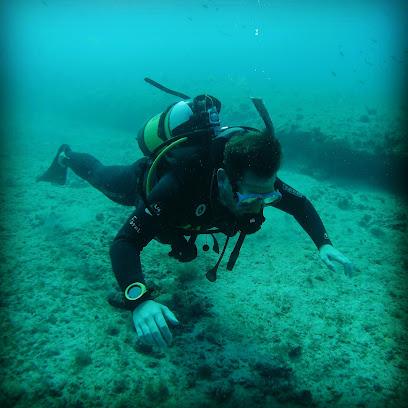
Santa Maria Beach
Escape to the tranquil shores of Praia António Sousa in Santa Maria, Cape Verde, for serene relaxation and calm turquoise waters.

Eco Dive School Cabo Verde
Discover the underwater wonders of Cabo Verde at Eco Dive School, a premier diving center in Santa Maria offering unforgettable diving experiences.
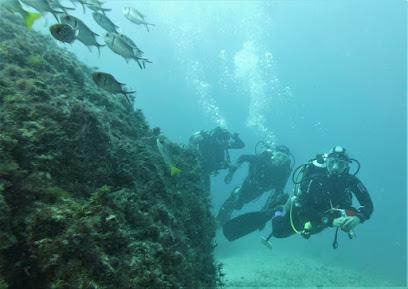
Ponta Sino, Kite Beach
Experience the thrill of kitesurfing and the beauty of Cape Verde at Ponta Sino, Kite Beach – where consistent winds meet stunning scenery.
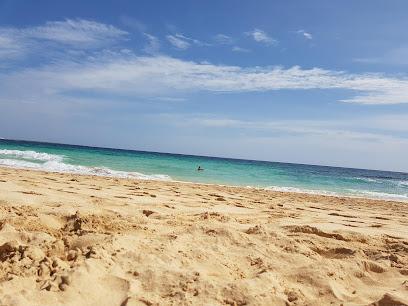
Port of Palmeira
Explore the Port of Palmeira in Cape Verde: A vibrant gateway to stunning landscapes and authentic local culture on the beautiful island of Sal.
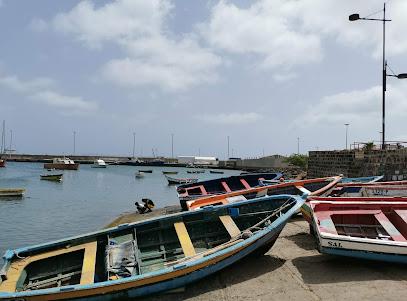
Santa Maria Dive Center
Discover vibrant reefs, diverse marine life, and unforgettable scuba diving adventures with Santa Maria Dive Center in Cape Verde.

ELECTRICA ELECTRIC BIKES
Experience the stunning coastlines and vibrant culture of Santa Maria, Cabo Verde, with Electrifica Electric Bikes - your gateway to adventure.
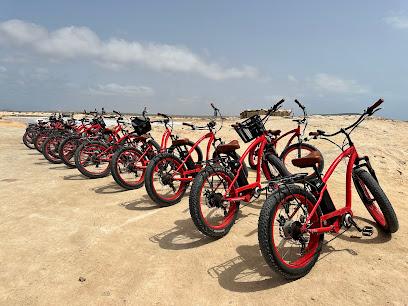
Praia de Santa Maria
Experience the stunning beauty and vibrant culture of Praia de Santa Maria, Cabo Verde's premier beach destination.
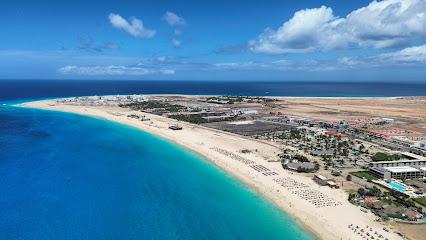
ScubaCaribe - Diving & Water Sports
Explore Sal Island's underwater wonders with ScubaCaribe: diving, snorkeling, and boat tours for all levels.
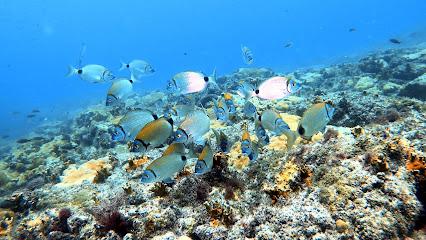
Essential places to dine
Nortenhah
Discover Nortenhah in Espargos - where local flavors meet global cuisine for an unforgettable dining experience.
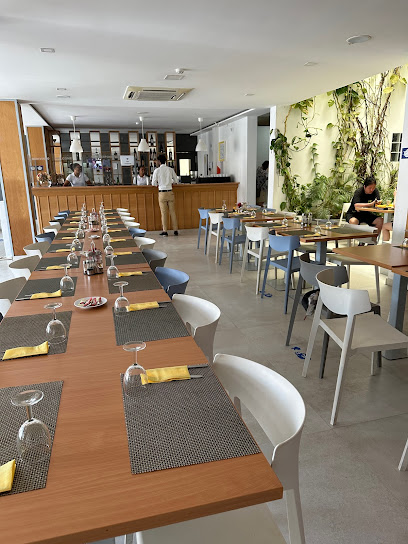
Grog's Bar Restaurant
Experience authentic Cape Verdean cuisine at Grog's Bar Restaurant in Espargos – where every meal is a celebration of flavor.
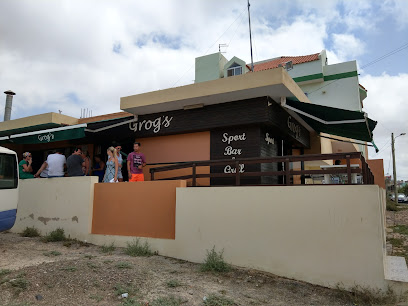
Benvass
Experience authentic Cape Verdean cuisine at Benvass in Espargos – where local flavors meet warm hospitality.
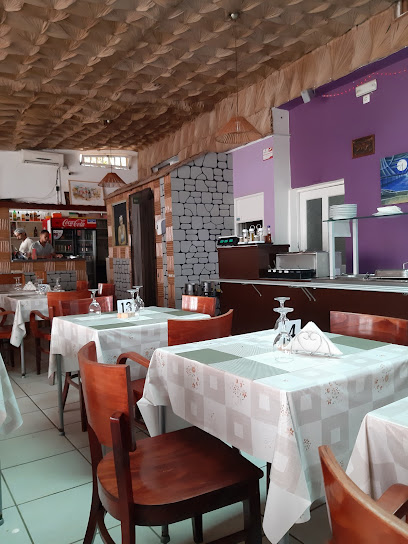
Caldera Preta
Experience authentic Cape Verdean cuisine at Caldera Preta in Espargos – where every meal tells a story.
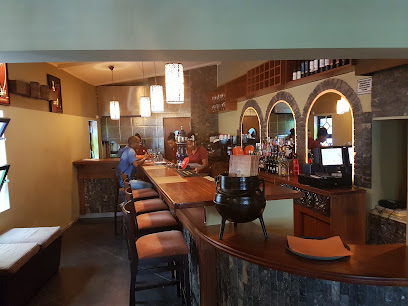
Restaurante Kretxeu
Experience authentic Cape Verdean cuisine at Restaurante Kretxeu in Espargos – where local flavors meet warm hospitality.
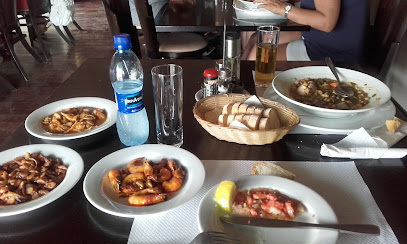
Cantinho D'mari Lunguinha (Merenga)
Discover authentic Cape Verdean cuisine at Cantinho D'mari Lunguinha in Espargos – where every dish tells a story.
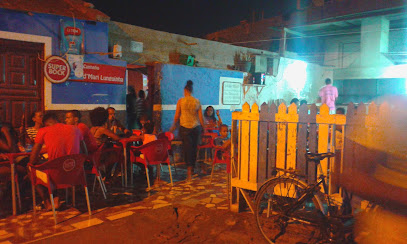
Summer Time - Cafetaria
Experience the authentic flavors of Cape Verde at Summer Time - Cafetaria in Espargos – where delicious meets delightful.
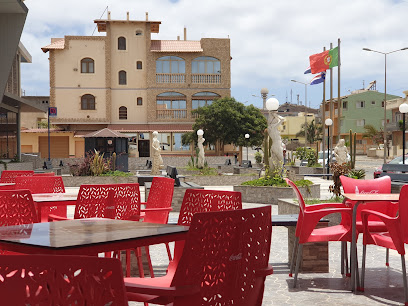
Lanchonete Lali
Discover authentic Cape Verdean flavors at Lanchonete Lali in Espargos – a delightful dining experience awaits!
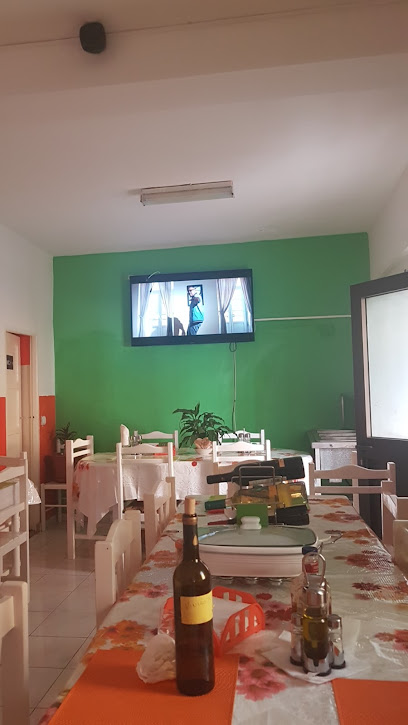
Sal Burguer
Experience culinary bliss at Sal Burguer in Espargos - where every bite of our handcrafted burgers tells a delicious story.
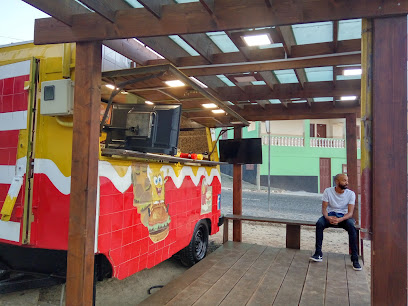
Bar Viola'o
Experience authentic Cape Verdean flavors at Bar Viola'o, a top-rated grill restaurant in Espargos offering delicious meals at moderate prices.
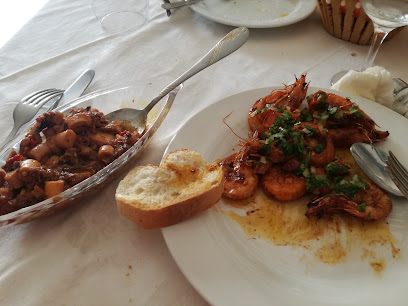
Restaurante Sara
Experience authentic Cape Verdean cuisine at Restaurante Sara in Espargos - a must-visit destination for food lovers.
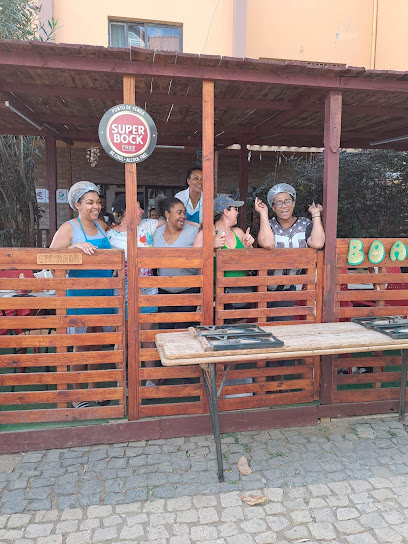
BAR RESTAURANTE SO SAB
Discover the authentic taste of Cape Verde at Bar Restaurante So Sab in Espargos - where every dish tells a story.
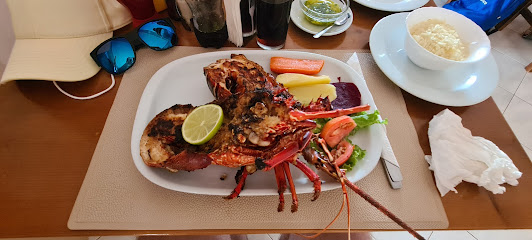
Girasol e Museu
Discover authentic Cape Verdean flavors at Girasol e Museu in Espargos, where culture meets culinary excellence.
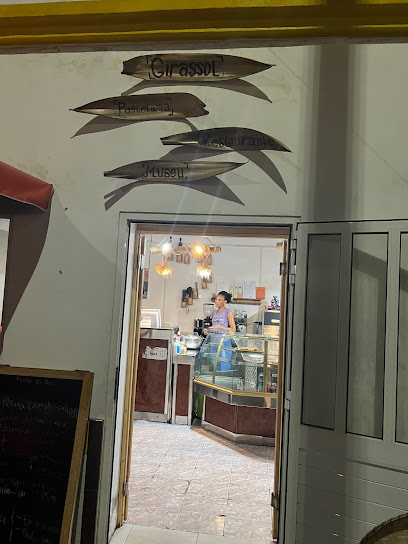
Restaurante Liké Terra
Experience authentic Cape Verdean cuisine at Restaurante Liké Terra in Espargos, where every dish tells a story.
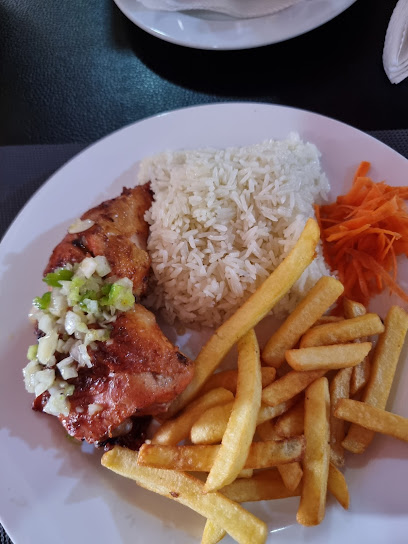
ESPAÇO CARIOCA
Discover authentic Cape Verdean flavors at Espaço Carioca in Espargos - a must-visit culinary gem for every traveler.
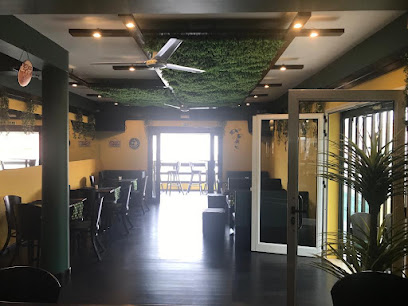
Markets, malls and hidden boutiques
SOCOL Shopping Center
Explore SOCOL Shopping Center in Espargos, where shopping meets dining and entertainment for an unforgettable experience.
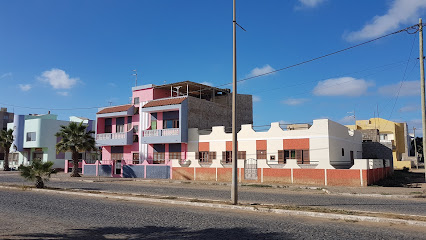
The Portuguese Bakery
Experience the delightful flavors of traditional and modern pastries at The Portuguese Bakery in Espargos, a must-visit for every sweet tooth.
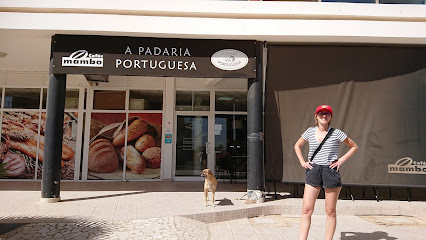
Central Supermarket
Explore the vibrant flavors of Cape Verde at Central Supermarket in Espargos, where local culture meets convenience.
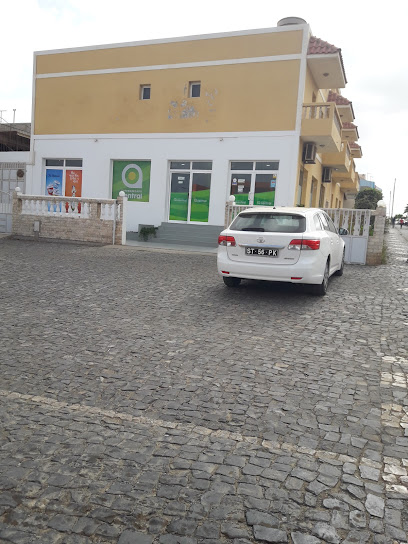
Livraria Sousa, Lda.
Explore a treasure trove of literature and stationery at Livraria Sousa, Lda. in Espargos, Cape Verde, where every corner invites creativity and discovery.
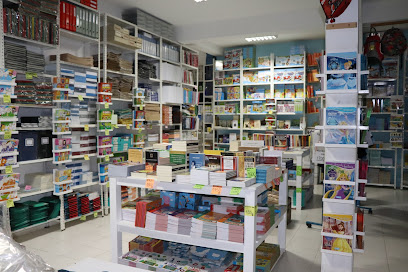
Mercado Municipal
Discover the vibrant flavors of Cape Verde at Mercado Municipal, a local market showcasing fresh produce, spices, and authentic crafts in Espargos.
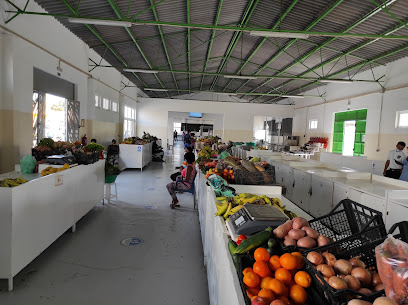
Família Supermercado
Explore the local flavors at Família Supermercado, your go-to destination for Cape Verdean culinary delights and fresh produce in Espargos.
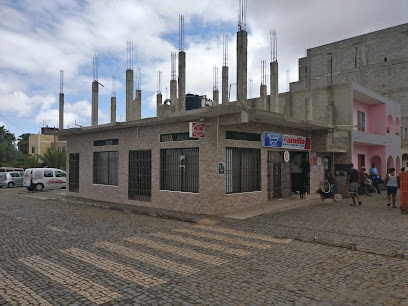
Gira Mondo
Savor the vibrant flavors of Gira Mondo, Espargos' best ice cream shop, offering a delightful escape for every sweet tooth.
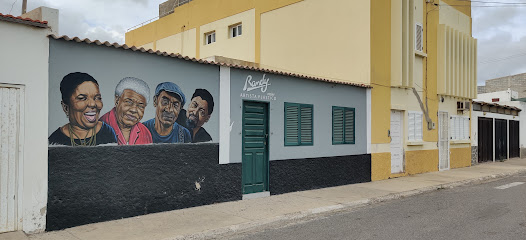
Mini Mercado Daniela
Explore the lively Mini Mercado Daniela in Espargos, where shopping meets authentic Cape Verdean culture and local delicacies await.
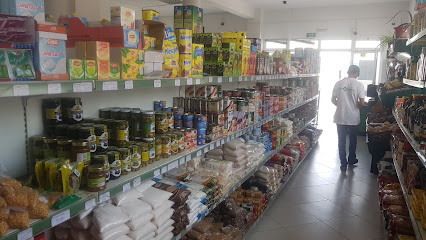
Buraconacenter
Experience the vibrant shopping and dining scene at Buraconacenter in Espargos, Cape Verde - a must-visit for every traveler.
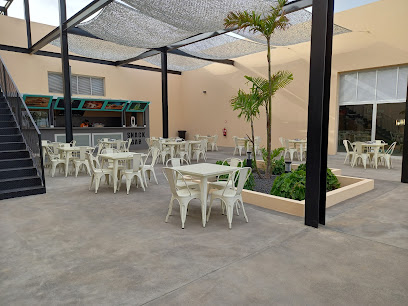
Loja Nando
Discover the essence of Cape Verdean cuisine and culture at Loja Nando, your go-to grocery store in Espargos, offering a delightful variety of local and international products.
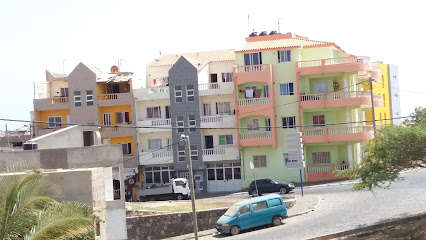
Cazu Supermercado Espargos
Discover local flavors at Cazu Supermercado Espargos, your go-to grocery store for authentic Cape Verdean products and a taste of daily life.
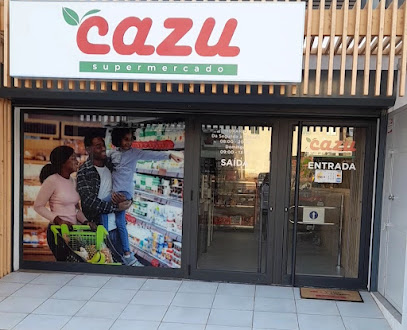
Garrafeira dos Espargos
Explore the exquisite selection of local and international wines at Garrafeira dos Espargos in Espargos, a true wine lover's haven.
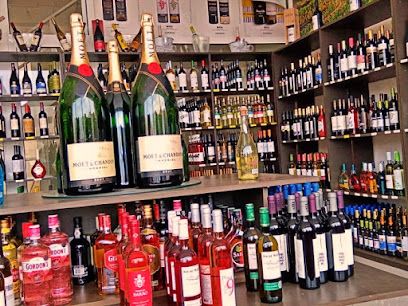
Loja tá Almeida
Discover the local culinary delights at Loja tá Almeida, your go-to grocery store in Espargos for fresh produce and Cape Verdean specialties.
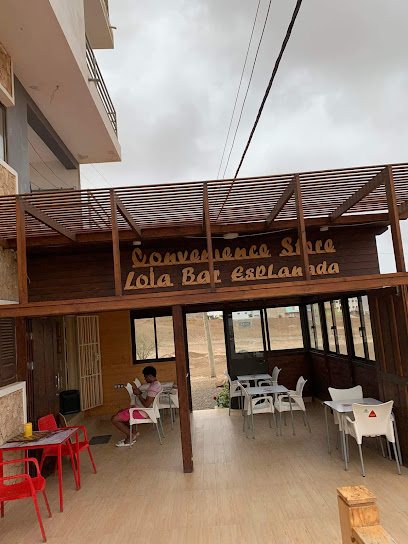
Vogue Bridal
Shop at Vogue Bridal in Espargos for exquisite bridal wear and accessories, ensuring every bride finds her dream dress with personalized service.

Ferreira & Brito
Explore local flavors and handcrafted souvenirs at Ferreira & Brito, a charming store in Espargos, Cape Verde, perfect for tourists.
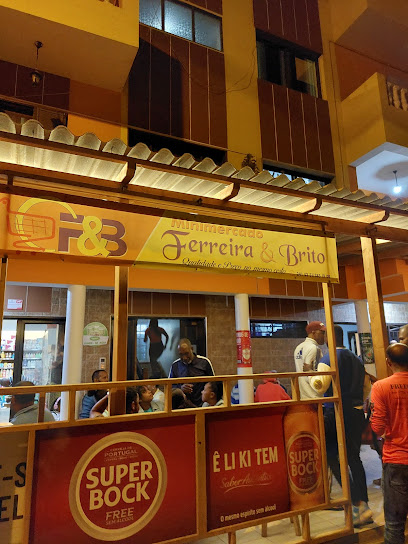
Essential bars & hidden hideouts
Portta5
Experience the vibrant atmosphere and signature cocktails at Portta5, Espargos' top bar for locals and tourists alike.
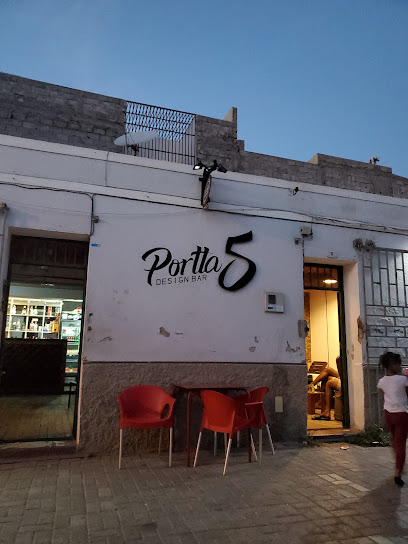
Ziquipa Bar
Discover Ziquipa Bar in Espargos, where vibrant nightlife meets refreshing drinks in the heart of Cape Verde's culture.
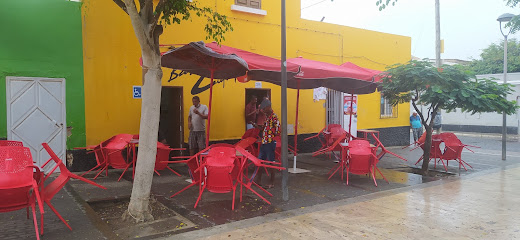
Bar Viola'o
Experience the vibrant flavors of Cape Verde at Bar Viola'o, Espargos' premier grill destination, where every meal is a celebration of local cuisine.
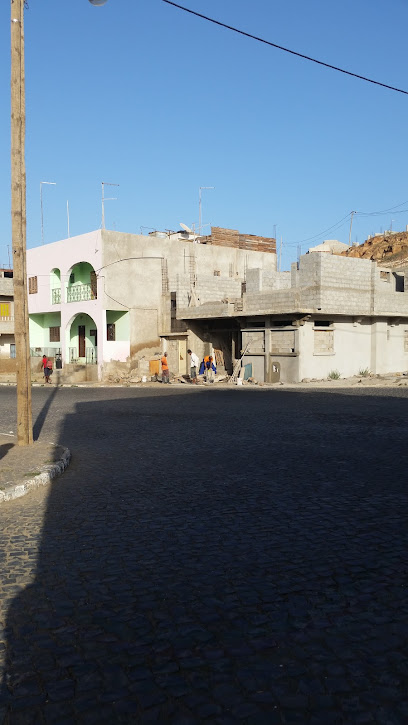
Bar D'sconce D'Boche
Experience the vibrant nightlife of Espargos at Bar D'sconce D'Boche, where local culture meets refreshing drinks in a cozy atmosphere.
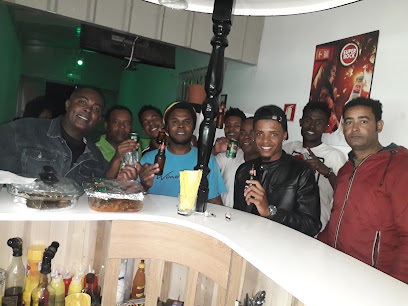
BAR RESTAURANTE SO SAB
Experience the best of Cape Verdean cuisine at BAR RESTAURANTE SO SAB in Espargos, where flavors and culture come together.

White Shisha & Lounge
Discover the vibrant atmosphere and exquisite shisha flavors at White Shisha & Lounge in Espargos, the perfect retreat for relaxation and socializing.
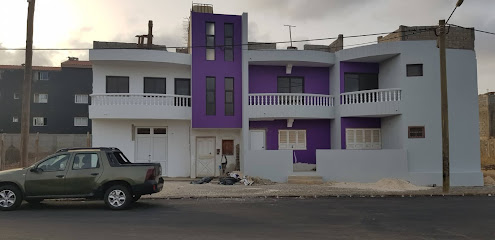
Dream Bar & Restaurante
Discover the flavors and vibrant culture of Cape Verde at Dream Bar & Restaurante, a top destination for grilled delights and live entertainment.
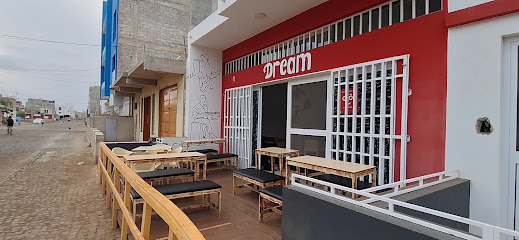
Pub-Bar Salão Azul
Discover the lively ambiance and local flavors at Pub-Bar Salão Azul in Espargos - a hotspot for tourists and locals alike.

Yellow Snack-bar
Discover the vibrant Yellow Snack-bar in Espargos, where delicious local flavors meet a lively atmosphere perfect for travelers.
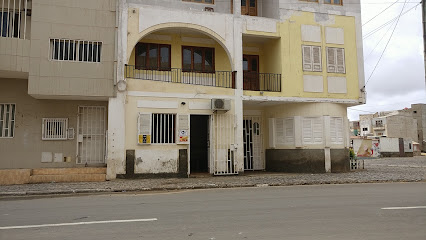
Bar Kotxi Pó
Experience the vibrant local culture at Bar Kotxi Pó, a lively bar in Espargos offering a delightful array of drinks and a warm ambiance.

Bafa's Spot Bar
Experience the lively nightlife and vibrant ambiance at Bafa's Spot Bar in Espargos, Cape Verde, where locals and tourists come together.
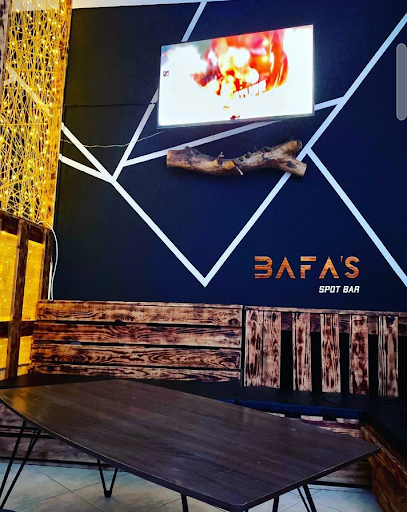
Bar XHora
Experience the vibrant nightlife of Espargos at Bar XHora, where local culture meets a lively atmosphere and delicious drinks.

Mambo Cafes
Discover the vibrant nightlife at Mambo Cafes in Espargos, where delicious drinks and a lively atmosphere await you.
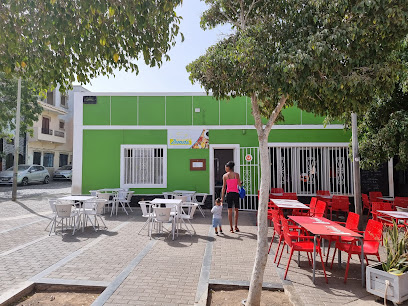
Bar Aldira
Experience the vibrant nightlife of Espargos at Bar Aldira, where great drinks and a friendly atmosphere come together for an unforgettable night.
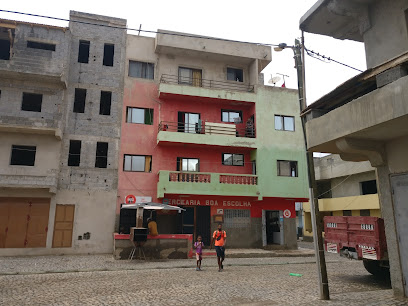
Local Phrases
-
- HelloOlá
[oh-lah] - GoodbyeAdeus
[ah-deh-oos] - YesSim
[seem] - NoNão
[now] - Please/You're welcomePor favor/De nada
[por fah-vor/deh nah-dah] - Thank youObrigado/a
[oh-bree-gah-doo/dah] - Excuse me/SorryDesculpe/Desculpa
[des-kool-peh/des-kool-pah] - How are you?Como está?
[koh-moo ehs-tah] - Fine. And you?Bem. E você?
[behn. eh voh-say] - Do you speak English?Fala inglês?
[fah-lah een-glehs] - I don't understandNão entendo
[now ehn-ten-doo]
- HelloOlá
-
- I'd like to see the menu, pleaseGostaria de ver o menu, por favor
[goh-stah-ree-ah deh vehr ooh meh-noo, poor fah-vor] - I don't eat meatNão como carne
[now koh-moo kahr-neh] - Cheers!Saúde!
[sow-deh] - I would like to pay, pleaseGostaria de pagar, por favor
[goh-stah-ree-ah deh pah-gahr, poor fah-vor]
- I'd like to see the menu, pleaseGostaria de ver o menu, por favor
-
- Help!Ajuda!
[ah-zhoo-dah] - Go away!Vá embora!
[vah ehm-boh-rah] - Call the Police!Chame a polícia!
[shah-meh ah poh-lee-see-ah] - Call a doctor!Chame um médico!
[shah-meh oom meh-dee-koo] - I'm lostEstou perdido/a
[ehs-toh pehr-dee-doo/dah] - I'm illEstou doente
[ehs-toh doo-ehn-teh]
- Help!Ajuda!
-
- I'd like to buy...Quero comprar...
[keh-roo kohm-prahr] - I'm just lookingEstou só a ver
[ehs-toh sooh ah vehr] - How much is it?Quanto custa?
[kwahn-too koosh-tah] - That's too expensiveIsso é muito caro
[ee-soo eh moo-ee-toh kahr-oo] - Can you lower the price?Pode baixar o preço?
[poh-deh bahy-shahr ooh preh-soo]
- I'd like to buy...Quero comprar...
-
- What time is it?Que horas são?
[keh oh-rahz saw-oo] - It's one o'clockÉ uma hora
[eh oo-mah oh-rah] - Half past (10)Meia hora (10)
[may-ah oh-rah (djee-ahs)] - MorningManhã
[mah-nyah] - AfternoonTarde
[tahr-d] - EveningNoite
[noy-t] - YesterdayOntem
[ohn-tehm] - TodayHoje
[oh-zhay] - TomorrowAmanhã
[ah-mah-nyah] - 1Um
[oom] - 2Dois
[doh-ees] - 3Três
[trehs] - 4Quatro
[kwah-troh] - 5Cinco
[seeng-koh] - 6Seis
[say-ees] - 7Sete
[seh-teh] - 8Oito
[oy-toh] - 9Nove
[noh-veh] - 10Dez
[deh-z]
- What time is it?Que horas são?
-
- Where's a/the...?Onde fica o/a...?
[ohn-deh fee-kah oo/ah] - What's the address?Qual é o endereço?
[kwahl eh oo ehn-deh-reh-soo] - Can you show me (on the map)?Pode mostrar-me (no mapa)?
[poh-deh mohs-trahr-meh (noo mah-pah)] - When's the next (bus)?Quando é o próximo (autocarro)?
[kwahn-doo eh oo proh-ksee-moh (ow-toh-kah-roo)] - A ticket (to ....)Um bilhete (para ....)
[oom beel-yeh-teh (pah-rah)]
- Where's a/the...?Onde fica o/a...?
History of Espargos
-
Espargos, the vibrant heart of Sal Island, was founded in the mid-20th century. The city's name, derived from the Portuguese word for 'asparagus,' references the wild asparagus that once grew in abundance. Initially, Espargos was a small settlement, but its strategic location and flat terrain quickly drew attention for development.
-
Espargos' transformation began in the 1930s with the construction of Amílcar Cabral International Airport, originally an emergency landing strip for the transatlantic flights of Pan American Airways. The airport, located just outside Espargos, became a pivotal refueling stop and boosted the town's growth. This period marked the beginning of Espargos as a crucial aviation hub in the mid-Atlantic.
-
During the Portuguese colonial period, Espargos developed under the influence of Portuguese architecture and urban planning. The colonial administration established key infrastructures, including roads, schools, and hospitals, shaping the town's layout and cultural landscape. The remnants of these colonial structures still dot the city, offering a glimpse into its past.
-
Following Cape Verde's independence from Portugal in 1975, Espargos experienced significant changes. The city became a center for government and administration on Sal Island. Investments in infrastructure and utilities under the new national administration led to rapid urbanization and modernization, enhancing its role as a key urban center.
-
Espargos is a cultural melting pot, reflecting the diverse heritage of Cape Verde. The city is known for its vibrant festivals, music, and dance, particularly the morna and coladeira genres. Local cuisine, with its mix of African, Portuguese, and Brazilian influences, also highlights the rich cultural tapestry of Espargos.
-
Today, Espargos stands as a bustling city with a unique blend of historical charm and modern amenities. It is the administrative and economic hub of Sal Island, attracting tourists with its rich history, cultural vibrancy, and proximity to stunning beaches. The city's ongoing development projects and increasing international connections continue to shape its dynamic character.
Espargos Essentials
-
Espargos, the capital of Sal Island in Cabo Verde, is most easily accessed via Amílcar Cabral International Airport (SID). Direct flights are available from various European cities, as well as from other islands in Cabo Verde. From the airport, Espargos is only a short 10-minute drive away, and taxis are readily available outside the terminal.
-
Espargos is relatively small, making it easy to explore on foot. For longer distances or trips around the island, taxis are a convenient option and are generally affordable. Aluguers (shared minibuses) are also a popular and cost-effective mode of transport, connecting Espargos to other parts of the island, such as Santa Maria. Car rentals are available for those who prefer to explore at their own pace.
-
The official currency in Cabo Verde is the Cape Verdean Escudo (CVE). Credit cards are accepted in most hotels, restaurants, and larger shops, but it is advisable to carry some cash, especially for smaller establishments and markets. ATMs are available in Espargos, and it is a good idea to withdraw sufficient cash upon arrival.
-
Espargos is generally safe for tourists, but it is wise to take standard precautions. Avoid walking alone at night in poorly lit areas and be mindful of your belongings in crowded places. Petty crime, such as pickpocketing, can occur, so remain vigilant. There are no specific high-crime neighborhoods targeting tourists, but it is always best to stay alert.
-
In case of emergency, dial 132 for police assistance or 131 for medical emergencies. Espargos has a main hospital (Hospital Ramiro Figueira) and several pharmacies for minor health issues. It is highly recommended to have travel insurance that covers medical emergencies. For minor issues, pharmacies in the town can provide over-the-counter medications.
-
Fashion: Do wear light and breathable clothing due to the warm climate. When visiting religious sites, avoid wearing revealing clothing. Religion: Do respect local customs and traditions, and dress modestly when visiting religious sites. Public Transport: Do be courteous to other passengers and wait in line for aluguers. Don’t eat or drink on public transport. Greetings: Do greet people with a friendly 'Bom dia' (Good morning) or 'Boa tarde' (Good afternoon). A handshake is common. Eating & Drinking: Do try local dishes and enjoy Cape Verdean hospitality. Don’t refuse food or drink offerings, as it may be considered impolite.
-
To experience Espargos like a local, visit the Mercado Municipal (Municipal Market) where you can buy fresh produce and local goods. Engaging with locals can provide insights into the town’s culture and history. Don’t miss the chance to try Grogue, a traditional Cape Verdean rum, and enjoy live Morna music performances in local bars. Additionally, explore the salt flats of Pedra de Lume and the nearby beach town of Santa Maria for a well-rounded experience of Sal Island.
Trending Landmark in Espargos
-
The Pier of Santa Maria
-
Buracona - Blue Eye Cave
-
Shark Bay
-
Salinas de Pedra de Lume
-
Hilton Cabo Verde Sal Resort
-
Pachamama Eco Park - Viveiro Botanical Garden
-
Amílcar Cabral International Airport
-
TUI BLUE Cabo Verde - Adults Only
-
Robinson Club Cabo Verde
-
Praia da Atalanta
-
No Limits Adventure Cape Verde
-
The Dubliner - Irish Bar
-
GiraMondo
-
Casino Royal
-
Terra Boa
Nearby Cities to Espargos
-
Things To Do in Santa Maria
-
Things To Do in Sal Rei
-
Things To Do in Boa Vista
-
Things To Do in Vila do Maio
-
Things To Do in Assomada
-
Things To Do in Praia
-
Things To Do in Dakar
-
Things To Do in Thiès
-
Things To Do in Mbour
-
Things To Do in Saint-Louis
-
Things To Do in Nouakchott
-
Things To Do in Bakau
-
Things To Do in Serekunda
-
Things To Do in Serrekunda
-
Things To Do in Lamin








